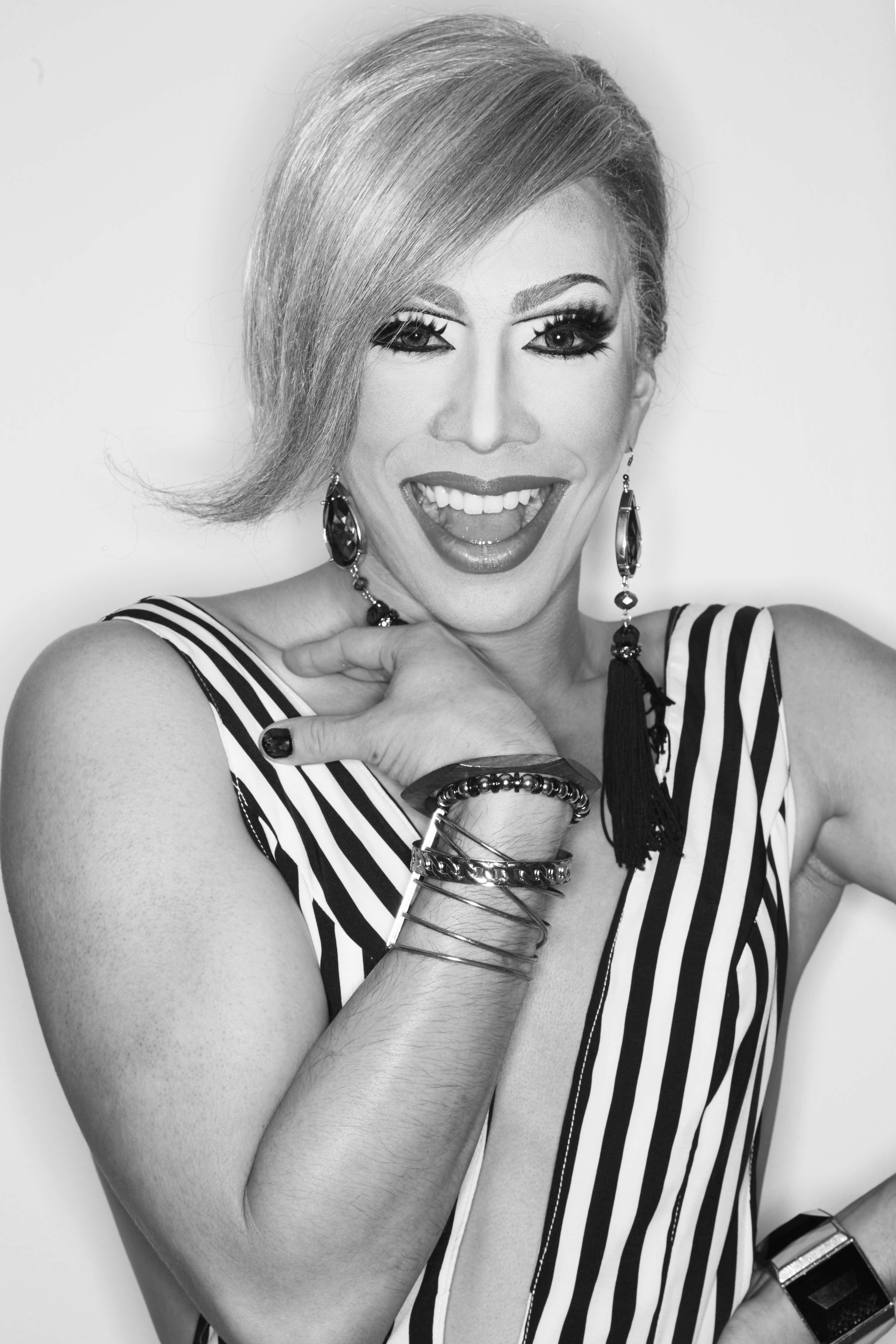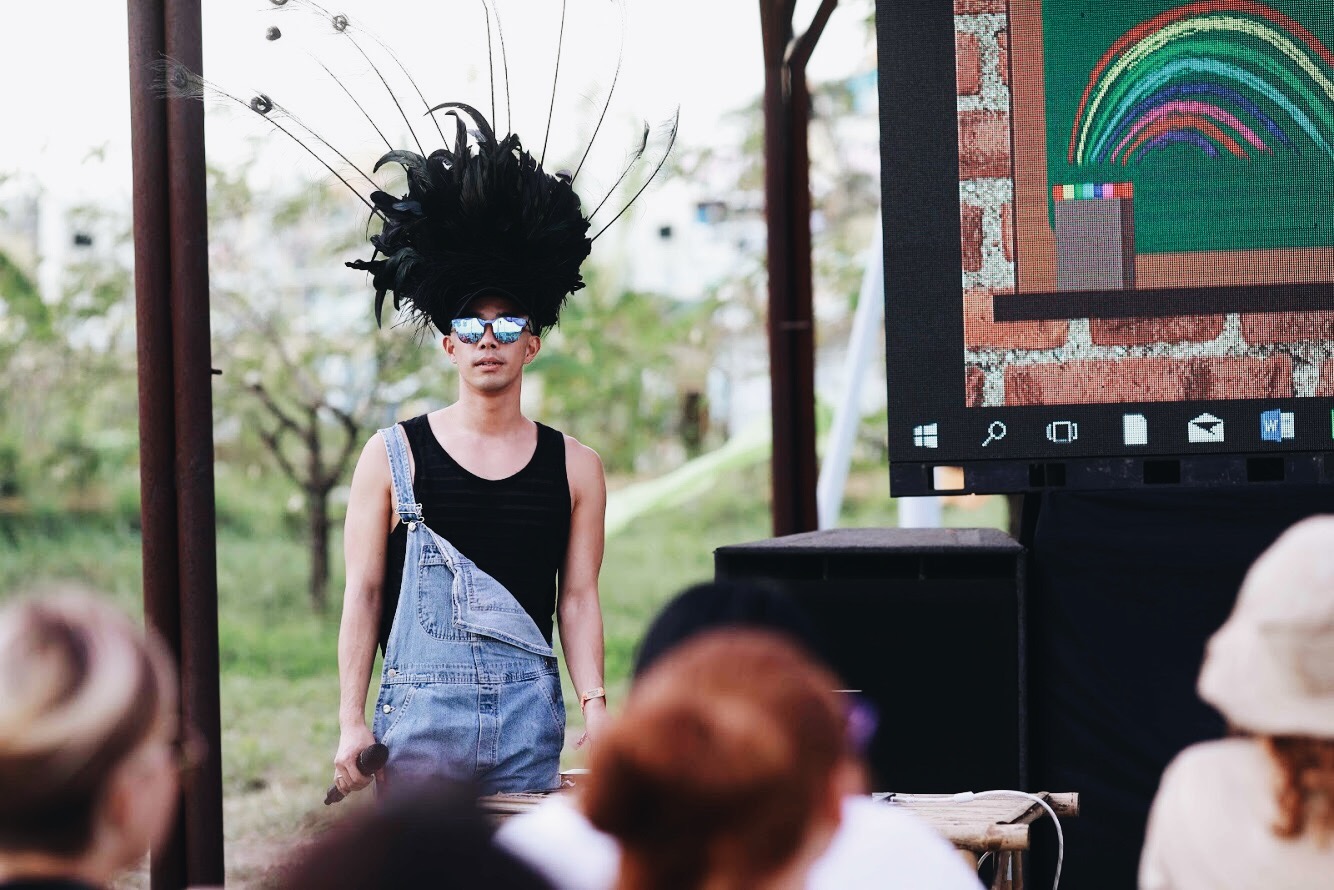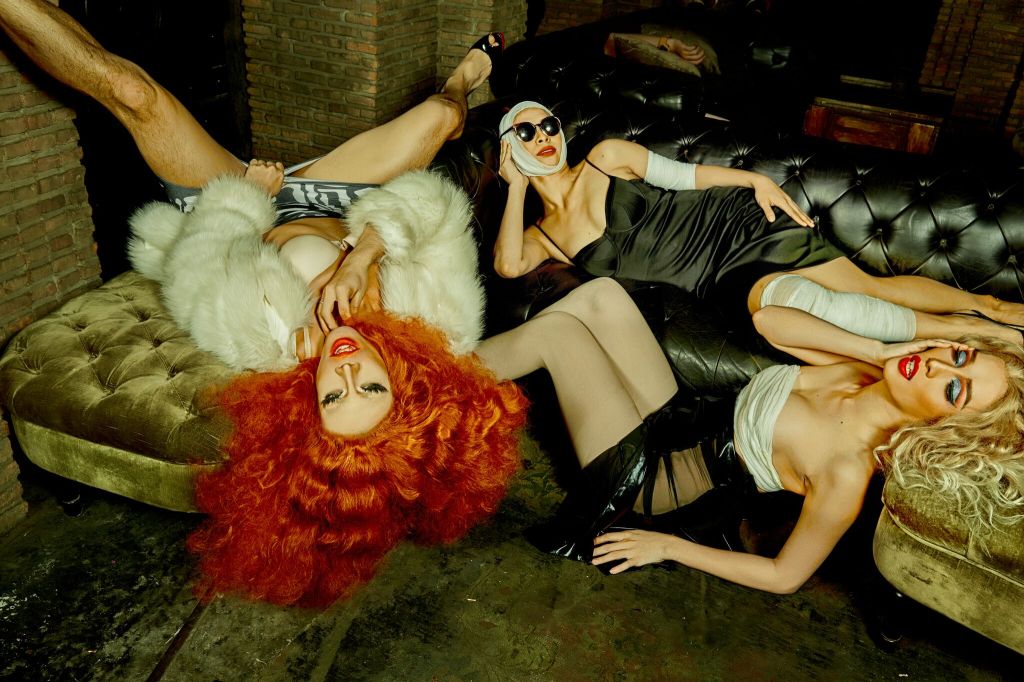Pan Pan Narkprasert has been called the “RuPaul of Thailand,” an outrageously over the top—and outrageously successful—drag queen hailing from a country where, for centuries, gender and sexuality have always been flexible things. But Narkprasert’s story starts a bit farther from home, on the campus of the University of California, Los Angeles, and at a Lady Gaga concert.
Narkprasert, 29, told me that he got his first taste of confidence after moving into a share house with some gay roommates, and that he later fell into drag by choosing to dress up as Lady Gaga and lip-sync “Paparazzi” to win tickets to see Lady Gaga perform in the United States.
Videos by VICE
“That is the first time I got into drag and I never stopped because, number one, it’s like Halloween every day,” he told VICE. “You get paid, you get attention, you get money—which I love—so I never stopped doing that, and also it’s really great drag queen because you can tell the reaction of a person and what kind of person they are within the first five minutes.”
Today, Narkprasert performs as Pangina Heals, a nationally known figure who has starred in a hit web series (“Queer as Fuck”), a trans talent show (T Battle), and regularly on stage at Maggie Choo’s (in Bangkok). VICE met up with Narkprasert at the Wonderfruit festival, outside Pattaya, Thailand, hours before he took the stage at the LGBTQ tent Forbidden Fruit for a “dragsical” titled “About a Boy.”

VICE: You said that Thailand is remarkably open to the wider LGBTQ community. Has it always been this way? What has changed in recent years?
Narkprasert: I think that once you get something good, you lose something as well. The younger generation, I feel, that while people are more open in general, people are more accepting, we are losing the culture of why we have fought for so long. Like most gay men now, they go to gay clubs and they don’t realize that we didn’t have this back then, or we didn’t know that there was a Stonewall Revolution for gay men. They don’t know about their own culture, which is sad.
And you’re seeing the same thing here in Thailand?
Everywhere. It’s like they don’t know that the reason they’re able to dance and celebrate and, like, look for dicks in a club, is that there was a struggle that lead up to that.
So, you’re a drag artist, and that’s different from a trans woman, but that what Thailand is known for, really worldwide, is the so-called ‘ladyboy.’ Yet, not a lot of people know that term is now seen as offensive, correct?
I think the important thing here is to understand from that the community [chooses] what term they like to be called and associated with, and, yeah, that word is not really used outside their community.
You’re a regular on the stage at Bangkok’s Maggie Choo’s, but you also perform all over the region right?
I’ve performed in Japan, Malaysia, Singapore, the Philippines, Guam… what other countries are there… Vietnam. A LOT. Really a lot of Asian countries.
What about Indonesia?
Only for vacation, but not to perform yet.
Indonesia is currently dealing with a lot of raids of gay nightlife spots, and other forms of persecution. What’s it like being from somewhere so much more accepting?
Yeah, that’s really sad. I really love Denpasar. I went there and the drag queens there are fucking fierce. They dance on like a tiny stage and were doing cartwheels and I was all over it. And it’s sad because the things that are happening now is stopping this kind of creativity.
The question I always ask whenever I go to other countries is ‘is it allowed?’ ‘Is being gay illegal?’ Because in some countries it is illegal. So I have to be careful, because sometimes people get violent and you have to handle yourself. And violent not from them, but sometimes from me, because if you touch me, I will touch you back.
Do you feel like this kind of prejudice is more common among older people? Or is it across all generations?
I think, how do you say this, ignorance runs in whatever age. I’ve had people threaten to shoot me before in a bar and wait outside with a gun and it’s just fucking drag… so it’s funny… a sense of humor is rare these days.

Where was that at?
My club! The place I work at Maggie Choo’s. Fuck that asshole. But no. No one will. No one is gonna fuck him. It’s good to realize that everyone’s different, but not everyone has… brains.
Were you always into drag? You mentioned that the first time you performed was to win tickets for a Lady Gaga concert. But back when you were younger…
I was so scared of drag queens back then. I was so scared. They were so tall, dancing everywhere, they were such attention whores, so I didn’t like it… and now I’m one!
So what changed then?
Just trying it and understanding why it’s exhilarating. It’s so creative, and just life changing.
Now, as a prominent drag performer, do you feel any responsibility when it comes to shifting the culture of a place more toward acceptance?
Of course it’s a responsibility and it’s also one of my goals because kids write to me whenever I appear on TV and be who I am completely, and this is also my life goal, to make sure that these kids are able to love themselves. It’s so important because bullying and, you know, suicide is so high and some kids are just so vulnerable and they are in positions where they can’t be themselves, so when they write to me they are like ‘Oh, not God, my parents hate me. They electroshock me and shit, but you are so who you are and that gives me hope’ and I think that it is not a responsibility, but more of a passion of mine.
Electroshock? Does that happen?
Oh yeah. Oh my God, yeah.
What’s you advice for kids who aren’t yet out of the closet who write you? What do you tell them?
Only tell your family when you’re ready to tell them and never apologize for who you are. They always start off the sentence, ‘I’m sorry for being gay,’ never say sorry for who you are or who you love because if you start it with ‘sorry’ you’re suggesting that you’re doing something wrong.
This interview has been edited for content and clarity.




